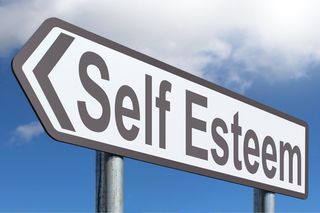Self-Esteem
Narcissism Is Not Just High Self-Esteem
There are many differences between high self-esteem and narcissism.
Posted May 22, 2018 Reviewed by Jessica Schrader

Most of us have met narcissists in the past. They are people who think highly of their own abilities and want to be in visible leadership positions. They waste no opportunities to tell others about their accomplishments. They are often charming (at least when they are trying to get something they want), but can react with anger when other people threaten their dominance.
At one level, narcissism shares a lot with self-esteem. Both narcissists and people with high self-esteem feel good about themselves and their accomplishments. This commonality makes it natural to think that narcissism is just a natural outcome of having high self-esteem.
A nice summary article by Eddie Brummelman, Sander Thomaes, and Constantine Sedikides in the February, 2016 issue of Current Directions in Psychological Science reviews evidence suggesting that narcissism is not the same as high self-esteem.
There are several reasons to want to treat narcissism as distinct from high self-esteem. For one thing, measures of narcissism and measures of self-esteem are not highly correlated. There are, in fact, some narcissists who have relatively low self-esteem. And there are many people with high self-esteem who do not score highly on measures of narcissism.
In addition, there is a difference in the orientation that narcissists and people with high self-esteem take toward their abilities. Narcissists feel superior to other people in their abilities. Feeling superior requires a constant comparison between self and others. If someone else’s abilities begin to match those of the narcissist, then the narcissist feels the need to denigrate that person. Superiority requires that if one person is better, then another is worse.
In contrast, people with high self-esteem are happy with their abilities. They feel like worthy individuals, independent of the characteristics of others. As a result, people with high self-esteem want to connect with others and to help other people improve. For people with high self-esteem, excellence is not a zero-sum game.
Narcissism and self-esteem also differ in their pattern as people grow. Both narcissism and self-esteem are evident in older children. But, narcissism tends to increase from childhood to adolescence and then (on average) to decline as people get older. (Obviously, there are still some people who have high levels of narcissism, even into adulthood.). Self-esteem shows the opposite pattern. The lowest average self-esteem in the population happens in adolescence and self-esteem rises as people get older.
An interesting facet of these traits is that they appear to be related to different parenting styles. Longitudinal studies tracking children over time find that narcissism often develops when parents overvalue their children’s achievements. Parents who praise their children for their intelligence, achievements, and performance above-and-beyond what is warranted are likely to increase their children’s narcissism.
In contrast, self-esteem is related to parental warmth. When parents treat their children affectionately and when they appreciate what they do, then they are likely to nurture self-esteem in their children rather than narcissism.
Ultimately, the focus on superiority is a key factor that differentiates narcissism from self-esteem. On the (potentially) positive side, people who spend their lives comparing themselves to others can motivate themselves to prove their excellence. On the negative side, a constant focus on being superior to others leads narcissists to want to dominate the people around them. Rather than developing the talents of others, narcissists want to clear a path to be seen as better.
This analysis also suggests that there are many benefits to having high self-esteem. In particular, if you feel worth independent of the people around you, then you are willing to be generous with your time and your talents. People with high self-esteem can help other people to do great things without ever feeling as though other people’s achievements diminish them.
References
Brummelman, E., Thomaes, S., & Sedikides, C. (2016). Separating narcissism from self-esteem. Current directions in psychological science, 25(1), 8-13.


